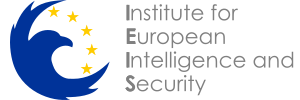Professional registration with the Institute represents independently recognised professional and academic competency in general and specialist intelligence fields. It demonstrates understanding of the complexities of intelligence work and competency in delivering to professional standards. It provides evidence of continuous investment in developing knowledge and understanding with a guarantee of contemporary best practice.
Registration is built on standards, ethics and is only available to recognised intelligence practitioners in current practice who have an interest in demonstrating professional approaches to intelligence work. It strengthens the value of the qualification and experience, underpins the importance of best practice and professional ethics. Registrants demonstrate their status through the use of approved logos, designated post-nominals and membership benefits. These rights and entitlements are only valid as long as registration is maintained.
The qualification and status of registration is intrinsically linked to learning. All registrants are professionally qualified to industry standards at an international level acknowledged throughout Europe. Registrants are capable of extending and integrating their knowledge into professional practice without disrupting ongoing activities. In the future professional membership is likely to become mandatory in many jurisdictions as it has already in some segments of the security and investigative sectors.
Professional registrants possess industry-wide recognition, increased knowledge and skill, improved operational effectiveness and enhanced career options. Professional development also becomes simpler as expanding and developing an individuals skill set can be accomplished within the framework of a recognised and structured qualification. Registrants can be easily recognised by their current practicing certificate or licensed membership.
Registration also clearly demonstrates an advantage to employers through improving organisational capabilities, competitiveness and providing a guarantee of accountability in professional conduct. In addition professional registration adds value to organisations through the use of branding, accreditation and affiliation. Registrants can also be used to train and help retain other staff, raising professional standards across the organisation and acting as a nexus for professionalisation.
Oversight Panels
In November 2015 research from the EU Fundamental Rights Agency highlighted the lack of independent expert oversight of intelligence services by professional bodies as a critical issue. Although independent oversight did exist in some countries, the vast majority of member states had no such apparatus, relying on political and judicial means.
The Institute fills this gap, performing its role as an independent regulator and professional body. The Institute exists apart from government and industry and represents the profession of intelligence through its oversight and governance roles. Registered organisations under Institute oversight achieve a level of ethical compliance and public accountability that moves beyond the infrastructure in place throughout European member states alone. It is a public statement of service to the public, a guarantee of minimum standards and a commitment to professional ethics.
Admission to and removal from the professional register, accreditation of organisations and qualifications and oversight, governance and disciplinary measures are decisions made by panels commissioned specifically for that purpose. When an organisation, its staff or qualifications carry Institute accreditation, it is a consensus of judgement from professional leaders in the field that they have met European professional standards. A status any intelligence professional respects.
Panels are typically led by industry leaders, pioneering academics, renowned authors in the field and other individuals whose professional record would justify their appointment as an independent expert-practitioner. Panel leaders must have attained the highest qualifications available in their field, be regularly engaged in intelligence work and meet the requirements for professional registration. Panelists themselves must all be professional registrants qualified to practice within the scope of practice under examination.

